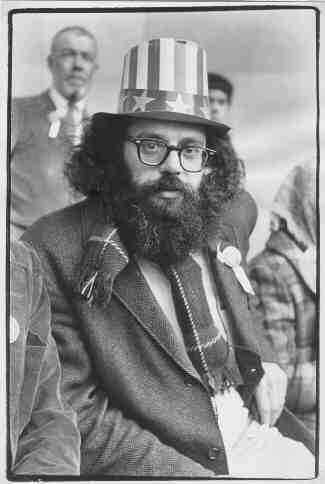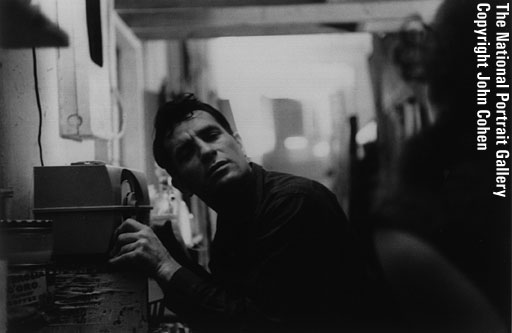
Fordism,
assembly line, sloanism, everyday life
-- The Legacy of McCarthyism
--
Reddi-Whip 
-- suddenly, just hanging out near Columbia University
"Though
it is certainly a generation of extremes,
including both the hipster and the radical young Republican in its ranks,
it renders unto Caesar (i.e, society) what is Caesar's and unto God what is
God's.
For the wildest hipster, making a mystique of bop,
drugs and the night life, there is no desire to shatter
the 'square' society in which he lives,
only to elude it."
John Clellon Holmes
The New York Times Magazine, November 16, 1952
HOWL

"the united phalanx,"
- the San Francisco Renaissance
- the Black Mountain poets
- the New York School poets.
kerouac
Warhol
archival practices and editing
resonances with music
questions
Who were the Beats? What unified them as a movement? How did they position themselves as an art movement? Were they a school like the Bauhaus? Were they an anti-establishment anarchist-anti-collective like the Dadists? Were they a self-proclaimed movement like the Futurists? Or is the term just something art historians use as a label (like "modernism" or "post-modernist")?
Why "beat" --consider the dual meaning of the term (beat as in
exhausted and beat as in rythym)
How and why are drugs and drug culture important in Beat writing? (consider
for example, the historical situation: soldiers back from the war...)
How is Ginsberg's Howl similar to surrealist art?
Consider the lack of editing in Beat writing and in Warhol's work.
What was the more general cultural shift that Wollin refers to on page
158?
What is detournement? (pg 158)
What is the semiotic field of art?
What does Wollin mean by the 'redemption of banality'? and by the 'transcendence
of the nausea of the replica'? (p161)
How was Warhol's Factory like a typical factory?
How was Warhol's Factory unlike a typical (or Fordist) factory?(p163)
Why did Warhol want his studio to be a factory? Why did he name it the
Factory?
Why does Wollin name Warhol's attitude to mass production theatrical? (p164)
Explain the significance of the replica and repetition in terms of mass
production and in terms of Warhol's art.
What difference between Burroughs and Warhol does Wollin point out? (p167)
Explain the relevance and significance of 'uniqueness' and 'authenticity'.
How does Warhol deal with these concepts? (p168)
What is the relationship between the leftover and mass production? In an
age of mass production are there more 'leftovers', more garbage, more debris?
How did Warhol approach the leftover?
Explain why Wollin argues that Warhol's literalism made the connection
between camp and minimalism?(p170) What is camp?(p161) Explain Warhol's
literalism.(p171)
Why did Warhol not edit his films?
Why is this article named 'Raiding the Icebox'?
